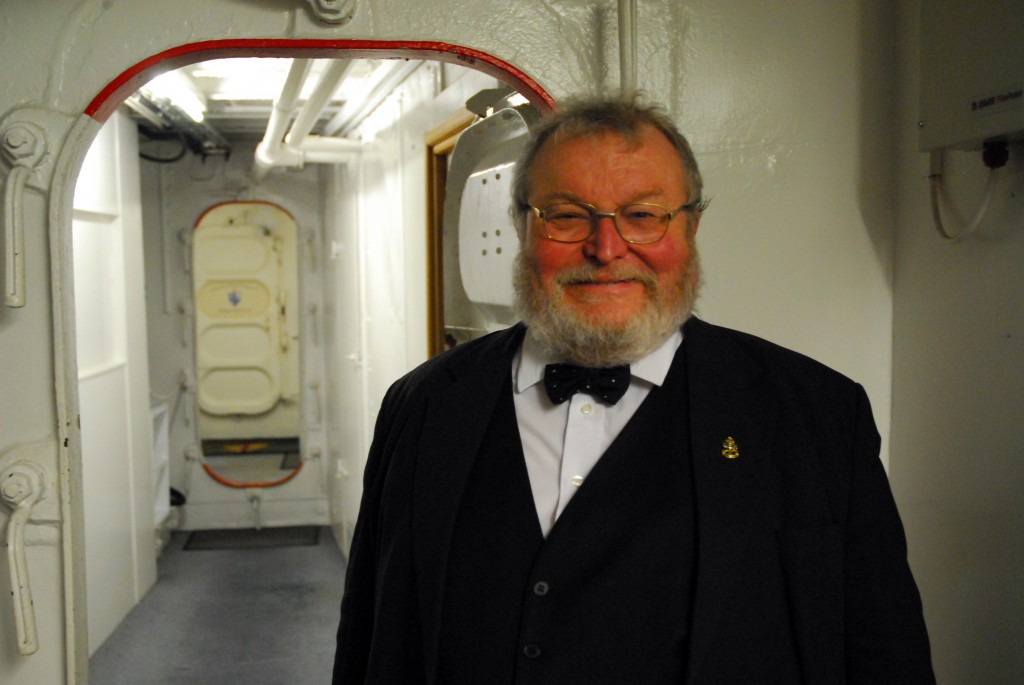
‘The winds and waves are always on the side of the ablest navigators.’
— Edward Gibbon, The history of the decline and fall of the Roman Empire, 1776
In 1997, when I was a young and inexperienced PhD student with my sights set on a career in strategic analysis, several people shaped my thinking, but none more than Professor Eric Grove.
Eric, who passed away last week at the age of 73, guided his students like a navigator at sea. He helped steer my career through its earliest period, avoiding rocks and shoals of academic misstep and inspiring my thinking along paths that allowed me to finish the first of many journeys.
Eric had a firmly established global reputation as a naval historian through voluminous production of first-rate books examining British naval history and, more broadly, on the nature of seapower with a focus on the post-war period. His seminal work, Vanguard to Trident: British naval policy since World War II (1987), remains the leading source for understanding the evolution of the Royal Navy during the Cold War. Battle for the Fiords (1991) looked at NATO’s Cold War maritime strategy, and The future of seapower (1990) considered the future of naval power in the post–Cold War period.
He also re-examined historical analysis of famous naval battles, notably in The price of disobedience: the Battle of the River Plate reconsidered (2000), and he edited Great battles of the Royal Navy (1988) through the Britannia Royal Navy College at Dartmouth.
The books were complemented by his teaching skills and his ability to bring the subject of naval history and seapower alive for his audience. Part of this was due to his encyclopaedic knowledge of the intricacies of naval affairs. He always had absolute mastery of events in individual battles at sea. That covered decisions of key individuals and the technology of the day from the ships of the line at Nelson’s Trafalgar to submarine operations in sealing the GIUK gap, that part of the North Atlantic between Greenland and Iceland and the United Kingdom that is regarded as a naval choke point, and on to the forward deployment of the NATO fleet in a clash with the Soviet Union. His expertise and deep knowledge of naval technology and the application of modern military capabilities at the policy level helped shape my understanding of modern military affairs and strategy.
Eric’s unique persona accentuated his appeal to his students. He always wore a bow tie and spoke with vigour and enthusiasm in any discussion about naval affairs. He never came over as uninterested in the efforts of his contemporaries and was always ready to assist his students, whether they wore a naval uniform or not.
He was not afraid to challenge orthodoxy or be critical of government policy, particularly those UK defence reviews, such as the National security strategy and strategic defence and security review 2015, that did not enhance defence capability. Eric contributed to both Royal Navy and Royal Australian Navy maritime doctrine development, and had a strong connection with Australia, including as a visiting fellow at what is now the Australian Naval Centre for Ocean Resources and Security at the University of Wollongong. He was a regular attendee at the RAN’s Sea Power Conference, and I last saw him in person there in 2013.
As my PhD supervisor between 1997 and 2002 at the University of Hull, Eric was always ready to help and advise me and my fellow students. For that work in shaping careers, together with his writings and his other contributions to the debate on seapower, he’ll be remembered by his colleagues across the world. Vale, Eric Grove.

